Supply chain sustainability:
Teaming up with suppliers to protect people and the planet
Oct 26, 2023 - Reading time 6-8 minutes
The typical consumer company’s supply chain has far greater social and environmental impact than its own operations, accounting for more than 90% of the impact on air, land, water, biodiversity, and geological resources [1]. In healthcare, the lion’s share of carbon emissions – 71% – are indirect emissions caused by the production and transportation of goods and services that hospitals purchase, such as medicines, food, equipment, clothing and waste treatment [2].
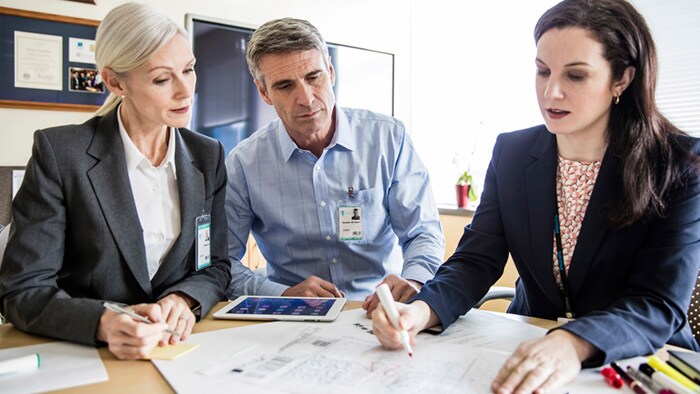
Mounting pressure to embrace more sustainable practices
To tackle these issues, governments are rolling out new regulations and companies are raising the standards they expect their suppliers to meet, in terms of environmental sustainability and working conditions. The aim being to cascade safer and more sustainable practices throughout supply chains. But achieving this aim has proven challenging. Suppliers frequently operate in earlier-phase development countries, often with limited access to the expertise and support they need to help meet evolving global sustainability demands. And in emerging or fragile economies, difficult socioeconomic conditions and slack local regulatory expectations can normalize and even encourage practices that tolerate high risks to human and environmental health and well-being. Suppliers also face very real financial hurdles, especially at the outset, from costs associated with making the adjustments to business processes, supply chains and products that are needed to meet higher environmental and social standards. Yet despite these challenges – or precisely because of them – getting suppliers to embrace more sustainable practices is one of the most critical steps towards ensuring humane working conditions and transitioning to a low-carbon, low-waste economy.
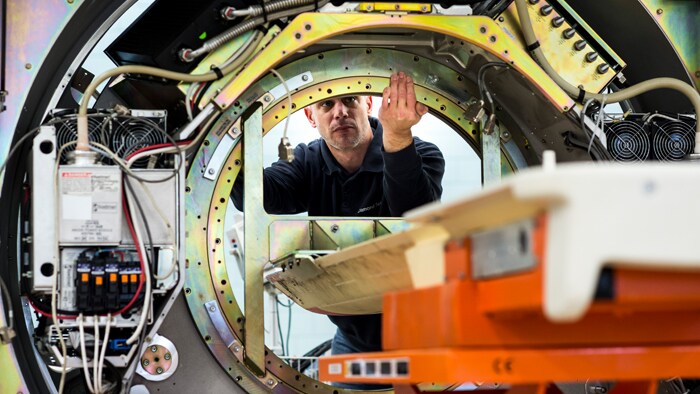
Working closely with suppliers to meet sustainability goals
Given the conditions within which many suppliers operate, mandating changes without acknowledging and addressing the barriers isn’t likely to achieve the desired results [3]. Companies need to bring experience, expertise and resources to the table, recognizing the very real obstacles suppliers face and working in partnership to overcome them. Companies that work as engaged partners with their suppliers are better positioned to help resolve issues and influence suppliers toward greener and more people-centered ways of operating. Successful collaborative models prioritize building trusting relationships with suppliers, creating a culture in which challenges can be openly shared, and working with suppliers to develop and implement more sustainable practices. This approach also grows supplier capability to cascade sustainability practices further down the supply chain – extending reach in improving working conditions and reducing environmental impacts.
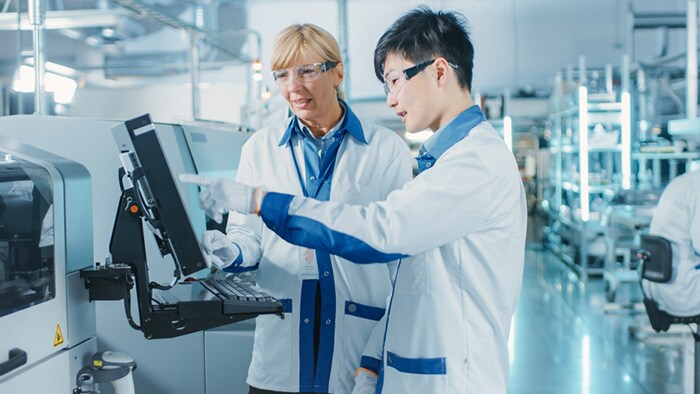
Beyond auditing – driving continuous improvement in supplier sustainability
At Philips, our purpose to improve people’s lives extends beyond our innovative products, systems and services to our supply chain. Philips’ Supplier Sustainability Performance (SSP) program replaces the traditional approach of supplier auditing, which had been shown to be insufficient in driving sustainable improvements and often leads to audit fatigue. “One of the most important behaviors we’re trying to drive is the focus on continuous improvement,” explains Bob Ruers, Philips Supplier Sustainability Director. He says this means identifying and tackling the root cause of process issues. With the SSP program, the focus is on ensuring structural, proactive improvement in social and environmental performance, rather than simply reacting to issues that arise. “If something's not right, you need to take time and analyze the problem,” he says. “There's no point in keeping the train running on a broken track. We need to normalize fixing the root cause.” By lending expertise to suppliers, Philips helps them grow their skills in many areas, including assessment of supplier sustainability performance, management of regulated substances, greening the supply chain, improvement of working conditions, and responsible sourcing. “Our SSP approach is long-term and relationship-driven,” says Bob. “We explain the reasoning behind the plan. At the beginning it may be, ‘I have a policy,’ but the larger aim is to build mature and sustainable supplier management.” Bob says implementing sustainable, people-centered practices in a company’s supply chain takes an all-hands-on-deck approach. “We invest in suppliers who provide a safe working environment, treat workers with respect, and work in an environmentally sound way. When problematic practices surface, that’s okay. Because identifying an issue is the first step towards making an improvement – and we do that together.”
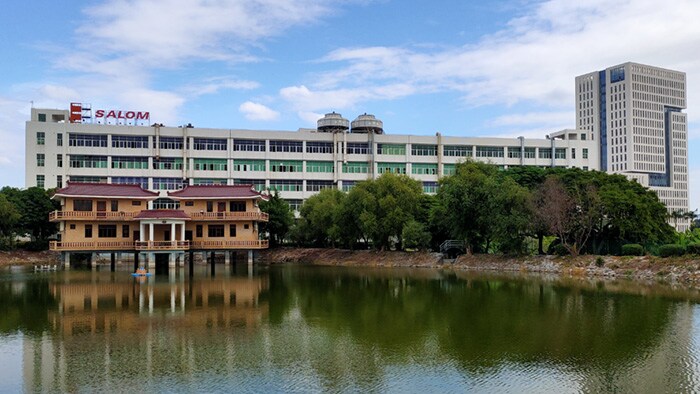
Partnering with Salom Electronics in China
The assessment-based program is unique, but more importantly, it works. Xiamen Salom Electronics in China has been a Philips supplier since 2008. After joining the SSP program in 2020, Salom has participated in Philips supplier programs that aim to improve social performance, reduce energy and water consumption, and help drive overall supply chain performance. During Salom’s journey of continuous improvement, Philips has provided support in a variety of ways. If Salom encountered problems, experts from Philips were ready to engage with them in problem-solving. Online and offline meetings helped Salom stay informed and understand the program benefits. As well, Philips supported Salom in:
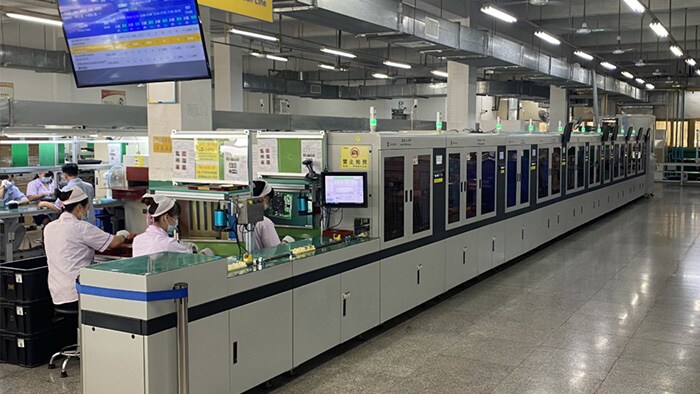
Salom has done a lot of work on energy conservation and emission reduction since joining the program. They have integrated energy conservation and emission reduction into their daily operations and management, including implementing an energy management system in accordance with the ISO 50001 standard. The ISO 14064 carbon inventory system was also established, and carbon inventory work is carried out every year. In 2023, the ISO14067 product carbon footprint investigation management system will be used to calculate and evaluate the total amount of carbon dioxide and other greenhouse gases released by Salom’s products during the entire life cycle (or part) of production, transportation, use and disposal. By establishing a management system in three areas – energy, carbon inspection and product carbon footprint – and adopting systematic and scientific management methods, the company can better manage energy use, optimize resource allocation, reduce environmental pollution, and improve energy efficiency. Elvis Chen, Assistant Sales at Salom, says that since joining the program, the company has gone through many changes that have helped improve Salom’s performance. Beyond environmental sustainability gains, Elvis lists changes that enhance working conditions for employees, like better communications and improved training and development, as well as simple office improvements, like more comfortable desk chairs and microwaves in break areas.
We’ve made changes that have positively benefited our employees and our company.”
Elvis Chen
Assistant Sales, Salom Electronics
He says these changes have not only improved employee job satisfaction and increased company loyalty, but they have also helped build Salom’s credibility and company reputation. The program also helps Salom identify and manage risk, as well as comply with international and local laws and regulations. “Reducing risk and complying with regulations helps maintain the health of the company,” says Elvis. Complying with requirements can also save the businesses money in the long term by helping them avoid future fines and legal exposure. “Overall, while the initial costs may increase,” he says, “viewing sustainability as a long-term strategic investment can lead to greater economic and social returns.” Elvis says he appreciates the focus on cooperation, transparency, and continuous improvement. “The Philips SSP program provides a level of transparency that strengthens our company's reputation, and our employees feel proud to work at Salom because they know it is actively striving to be socially and environmentally responsible.”
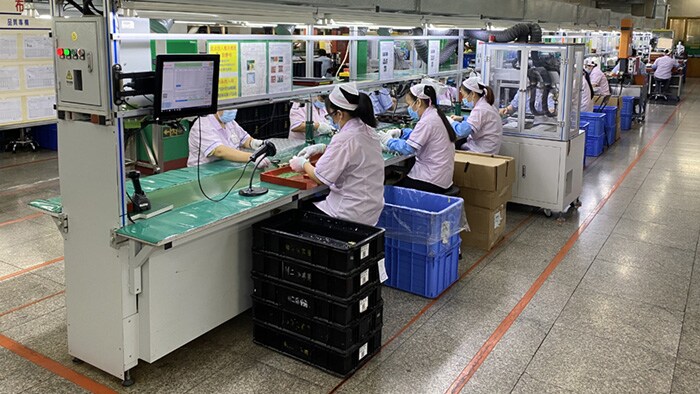
Cascading continuous improvement for a sustainable future
As a participant in the SSP Tier 2 program, Salom is now helping their own suppliers improve performance, reduce risks, and comply with requirements and standards related to environmental sustainability and social impact areas, like business integrity and occupational health and safety. “The SSP Tier 2 program not only helps safeguard supply chain stability and reliability,” Elvis says, “it also helps us eliminate unqualified suppliers and establish long-term relations with suppliers willing to work cooperatively with us.” Steven Wang, Philips’ China Supplier Sustainability Manager, has visited numerous suppliers over the past decades. He’s excited to see more mature suppliers, like Salom, working with tier-two suppliers and supporting them in continuous improvement. “By joining forces with our suppliers,” says Steven, “we can reduce our shared carbon footprint and create a sustainable and more resilient healthcare industry. This supportive ‘cascade’ approach helps Philips build broader momentum and make a bigger impact. “We want our story to inspire others to do the same.”
References [1] McKinsey & Company. Starting at the source: Sustainability in supply chains. [2] Karliner, Josh, et al. Health Care’s Climate Footprint. Health Care Without Harm, September 2019. [3] Villena, V.H. and Gioia, D.A. A More Sustainable Supply Chain. Harvard Business Review, March 2020.






